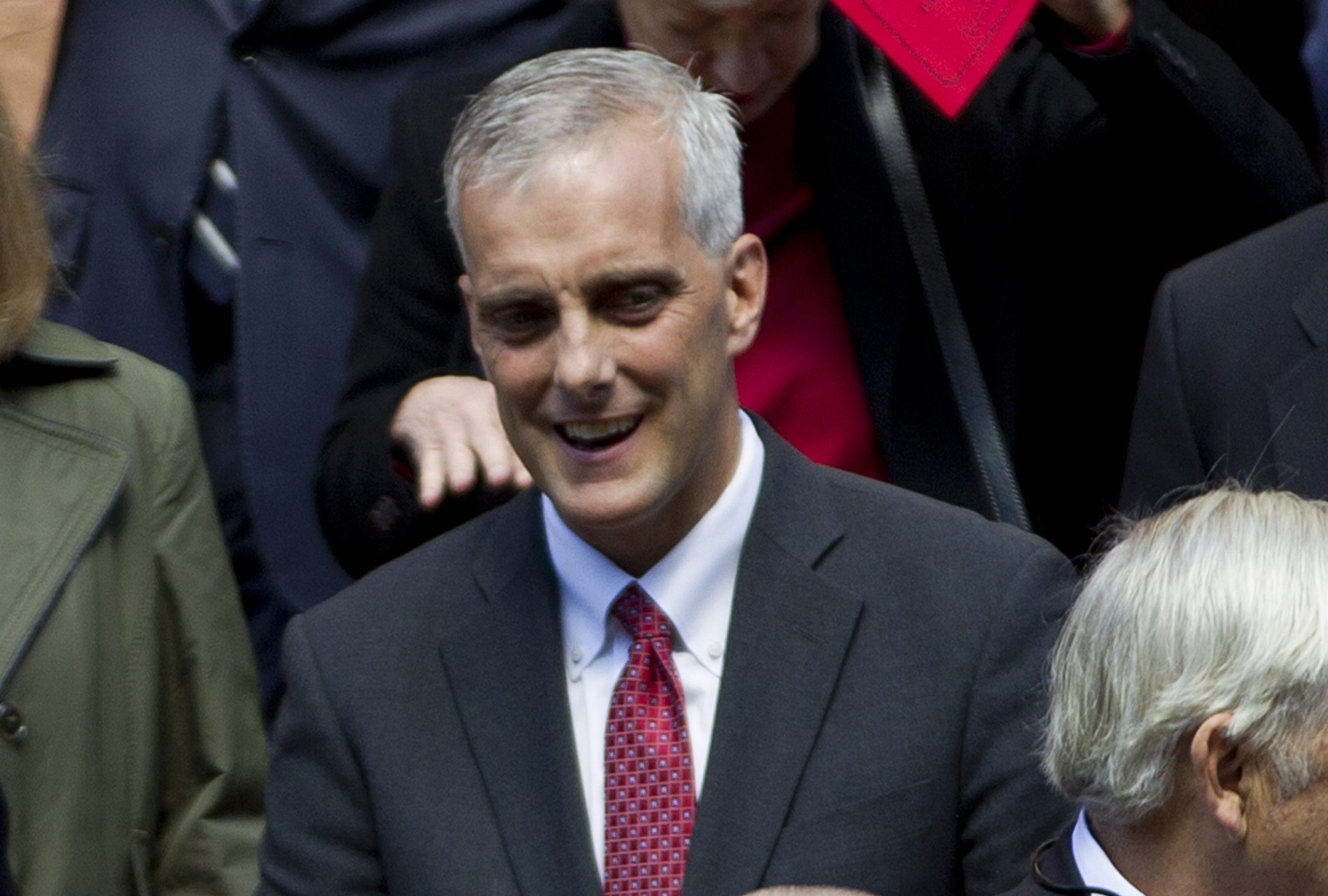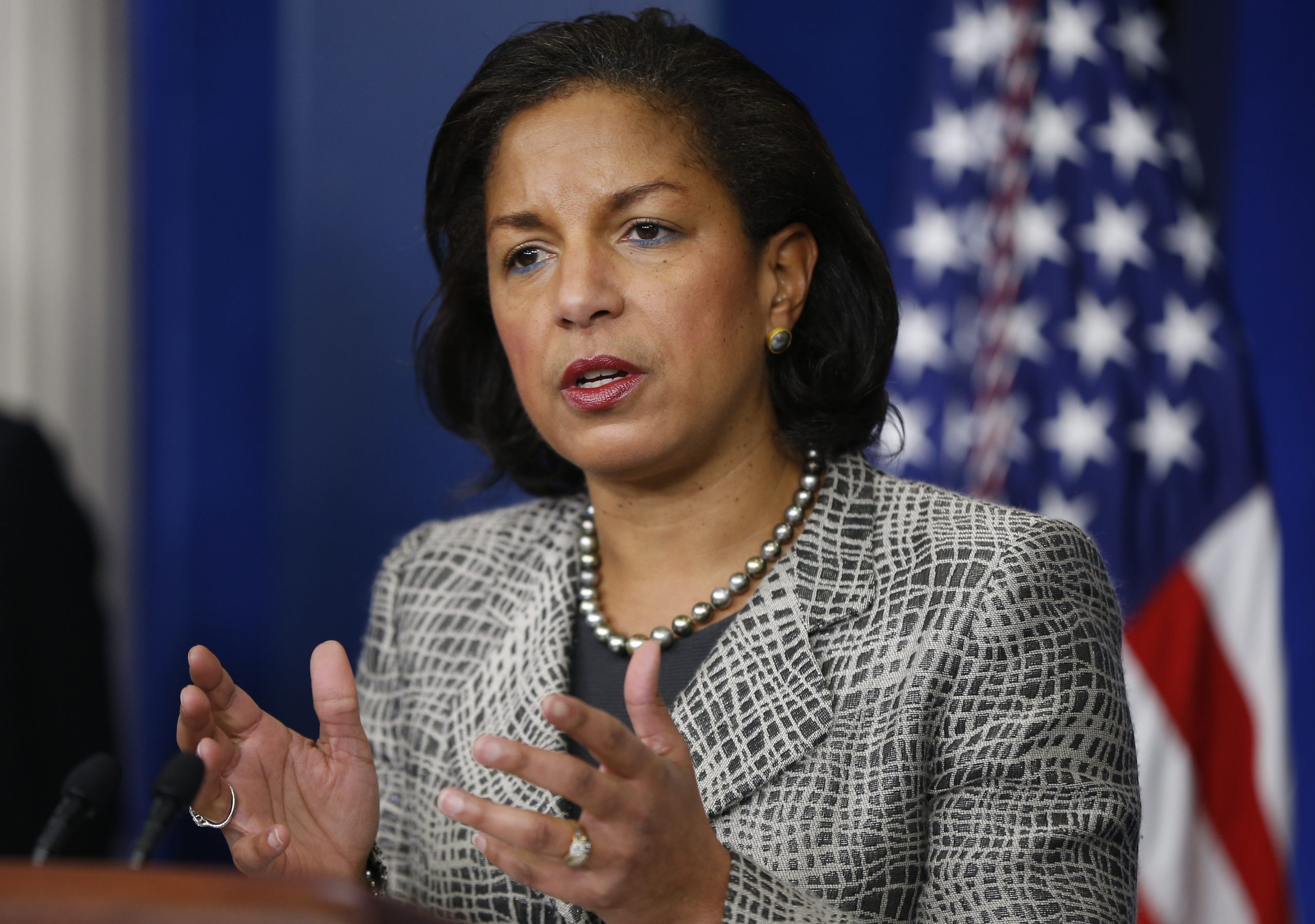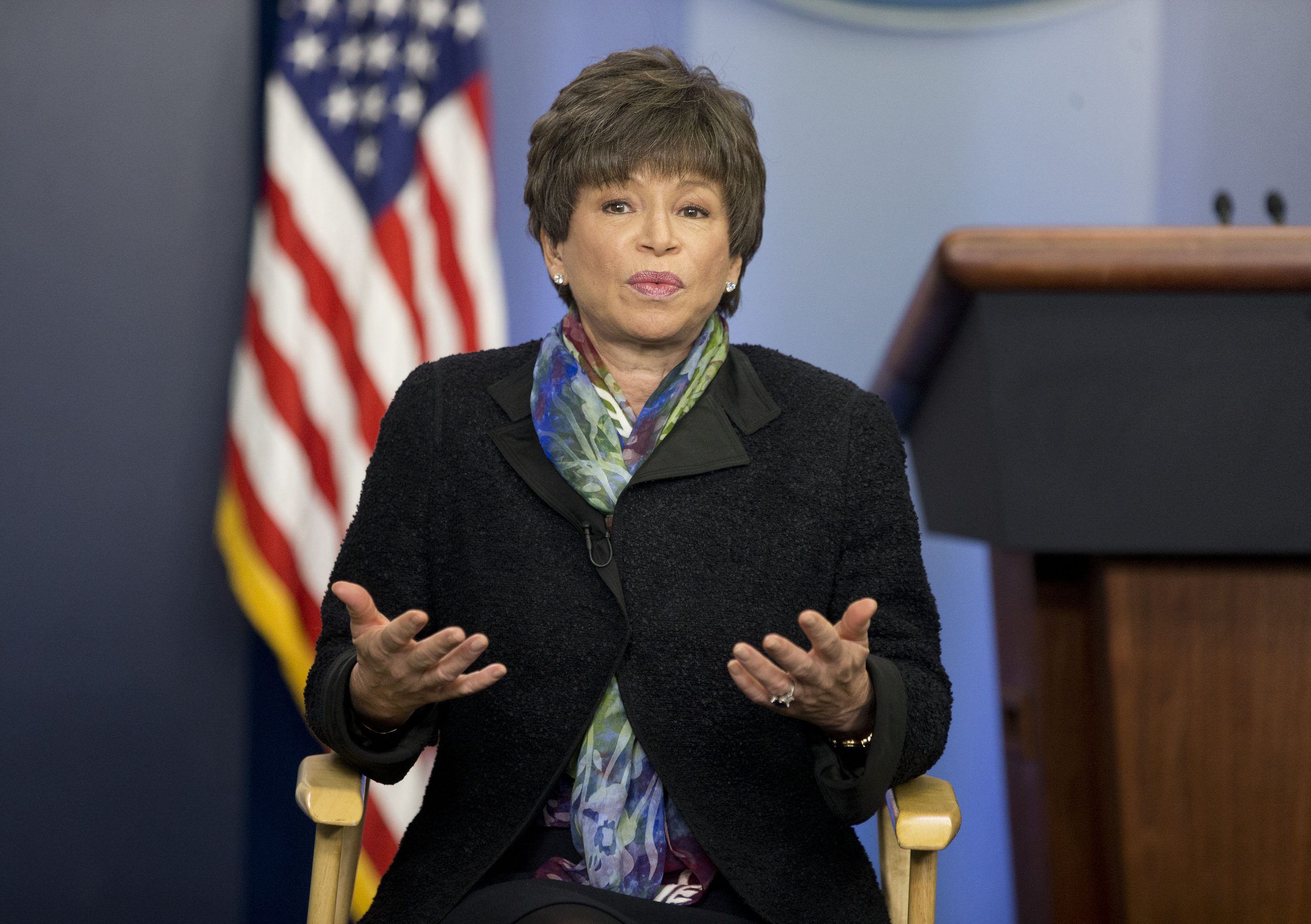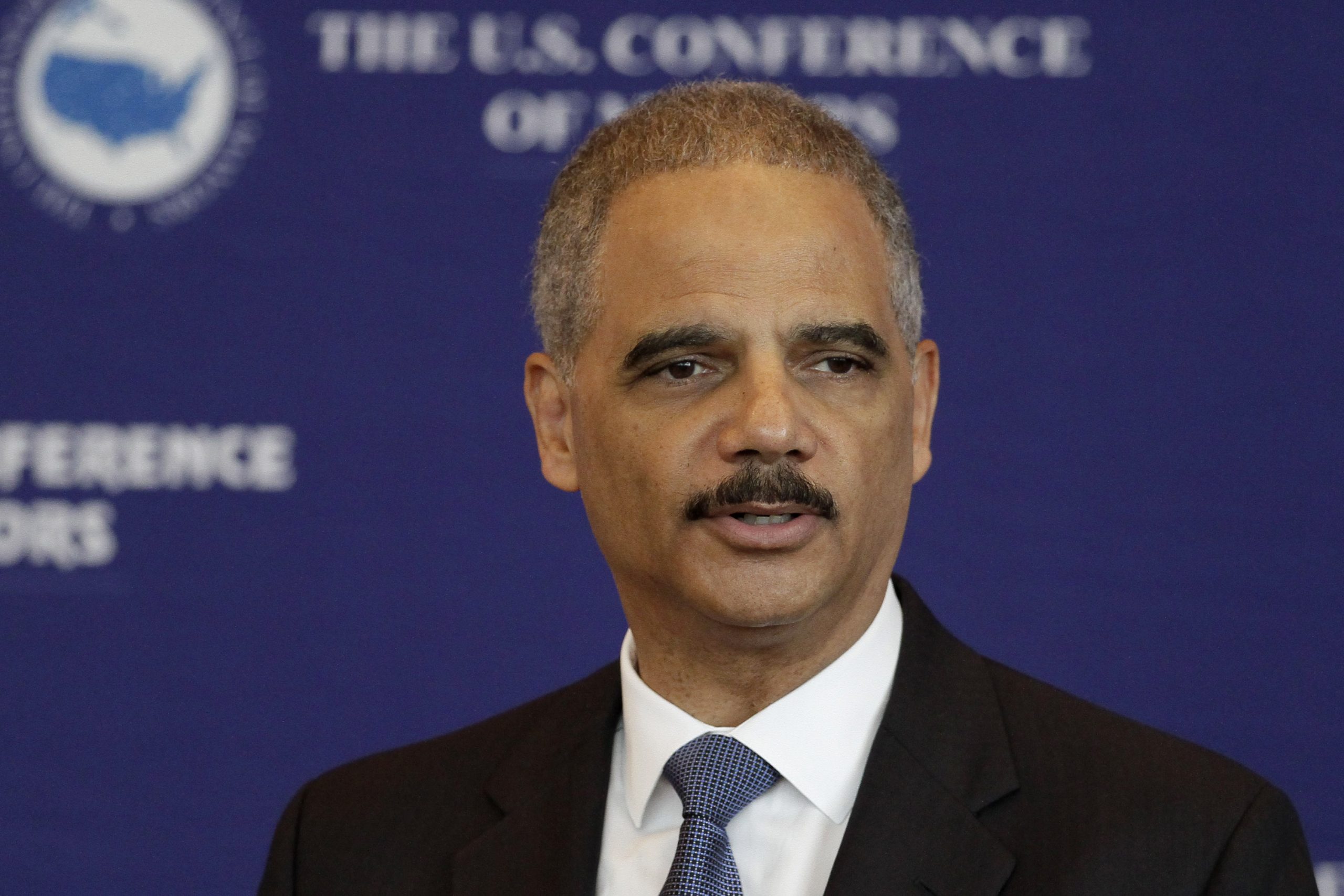President Obama is facing growing calls to clean house ahead of his final two years in office, with even allies demanding an infusion of fresh blood to resurrect his stalled presidency.
But just who exactly is on the chopping block in a potential overhaul of Obama’s inner circle?
Obama’s Cabinet has already undergone a dramatic makeover — with mixed results — as only Education Secretary Arne Duncan and Agriculture Secretary Tom Vilsack are left from his original team.
If Obama wants to make a statement, he’ll likely look to shake up his band of advisers, the communications shop or those running the day-to-day operations at 1600 Pennsylvania Ave.
Obama has resisted such a move six years into his presidency, preferring to keep a close-knit West Wing staff critics contend is too insular, but that he sees as unquestionably loyal.
With his domestic agenda stuck on the backburner, however, the president could finally hand out some pink slips. The move would amount to a Hail Mary, with the president calculating that he has little left to lose by trying something new.
Here are the most likely “casualties” in a major Obama shake-up.
Denis McDonough

Obama’s chief of staff is well liked, even by Republicans. He is credited with attempting to foster better relationships on Capitol Hill after lawmakers, including Democrats, grumbled about a lack of interest from the White House.
But if Obama wants something beyond a cosmetic tinkering, the chief of staff is usually the first to go. Obama’s predecessors eventually went down this path.
In a brutal election year, President Bill Clinton turned to Leon Panetta to bring much-needed discipline to a White House gone adrift. And President George W. Bush found success in tapping Josh Bolten, along with a new national security team, to salvage late gains in Iraq and Afghanistan.
“I don’t think Denis has done a bad job; in fact, I’d say he’s done well,” said one Democratic official with close ties to the White House. “But these moves are usually symbolic. If the president feels he needs a fresh start, I wouldn’t be all that surprised to see a new chief of staff. That would send a pretty clear message to the public.”
The White House has shot down virtually every rumor about a potential McDonough replacement, most notably Obama guru David Plouffe, who has since take a senior job with Uber.
But could Obama convince someone like John Podesta, the former Clinton chief of staff and current White House senior counselor, to return to the post for his final two years? Or could another dark-horse candidate emerge?
“Denis has been there almost two years,” said the Democratic official. “That’s like 10 years in any other job — especially these last two years. You couldn’t blame him if he wanted to get some rest, and after the midterms might be his last, best chance.”
Susan Rice

In Obama’s second term, foreign policy has been a headache that just won’t go away.
Whether it’s the rise of the Islamic State of Iraq and Syria, Russian President Vladimir Putin’s incursions in Ukraine, the Syrian civil war or an inability to launch his desired pivot to Asia, Obama desperately needs some good news overseas.
As for personnel moves, Secretary of State John Kerry and Defense Secretary Chuck Hagel likely aren’t going anywhere. The president doesn’t want another messy confirmation battle, particularly with Republicans increasingly likely to take back the Senate in November.
Replacing Susan Rice, his national security adviser, is far less complicated since the position does not require Senate confirmation.
Rice is widely unpopular in GOP circles, particularly for her now-infamous appearance on the Sunday-show talk circuit in which she attributed the terrorist strike on the U.S. consulate in Benghazi, Libya, to a spontaneous protest.
Her role in that episode forced her to withdraw from consideration to become secretary of state. Yet, she hasn’t built much goodwill among conservatives since transitioning to her current job.
However, one downside for Obama is the risk of appearing complicit to Republican demands. The president has gone out of his way to defend Rice in the past.
“If Sen. [John] McCain and Sen. [Lindsey] Graham and others want to go after somebody they should go after me,” Obama said in November 2012. “For them to go after the U.N. ambassador who had nothing to do with Benghazi … to besmirch her reputation is outrageous.”
But even some former members of Obama’s national security team say it’s time for fresh blood at the White House.
“I always think it’s a good idea to bring new life into the White House,” Panetta said Sunday on CBS’ “Face the Nation.” “The problem with the White House is, as you mentioned, is isolation. You isolate the president from a broad range of views. As a result, the president doesn’t get exposed to a broad range of views that he needs in order to make the decisions. So bringing new life in, bringing new views in would be very helpful to giving the president that greater exposure to a lot of different options that he’s going to have to consider if he’s going to get things done.”
Valerie Jarrett

If there’s a poster child for the charge that team Obama has become too isolated and resistant to change, it’s Jarrett.
The senior adviser and longtime Obama friend has one of the haziest, yet most crucial, roles at the White House.
There are few issues that reach the president’s desk without first going through Jarrett, according to White House insiders.
And with Obama exploring a slate of executive actions on issues ranging from immigration to Guantanamo Bay, Jarrett has adopted an even larger role in daily operations.
Her mark is also all over Obama’s heightened focus on civil-rights issues.
The issue with Jarrett, critics complain, is that she has too much influence, essentially keeping the White House from a drastically needed rethinking of how to best use the levers of government.
“At times, she’s the de facto chief of staff,” one former senior administration official told the Washington Examiner. “I don’t see her going anywhere unless she thinks it’s in the president’s best interest. And I don’t see her coming to that conclusion.”
But if a White House shake-up is meant to convey a “fresh start,” it’s Jarrett who would be viewed as the logical figure to replace.
Eric Holder

This is no surprise — Holder has announced his resignation pending his successor’s confirmation.
Holder was accused of running an activist Justice Department to pursue the administration’s political agenda. Supporters would argue that he was the most influential attorney general in decades, bringing racial disparities back to the forefront of the national dialogue.
The question is whether the next attorney general will follow in the same path as Holder, arguably the most controversial member of Obama’s Cabinet — or so Republicans would argue.
Labor Secretary Thomas Perez has emerged as an early frontrunner for the position. Given his own history at the Justice Department’s Civil Rights Division, Perez would likely continue much of Holder’s work.
If Perez is the choice, Obama will almost certainly nominate him as soon as possible.
Perez might not make it through a confirmation battle in a Republican-controlled Senate next year. With a lame-duck nomination, Perez could move through the upper chamber with a simple majority vote.
A safer pick, though, would be somebody like Solicitor General Donald Verrilli Jr., who argued the administration’s case on the Affordable Care Act before the Supreme Court.
Regardless, the attorney general choice is one of Obama’s most important personnel decisions. It will certainly signal how much validity the president puts in the White House shake-up theory espoused by Panetta and a growing chorus of critics.
